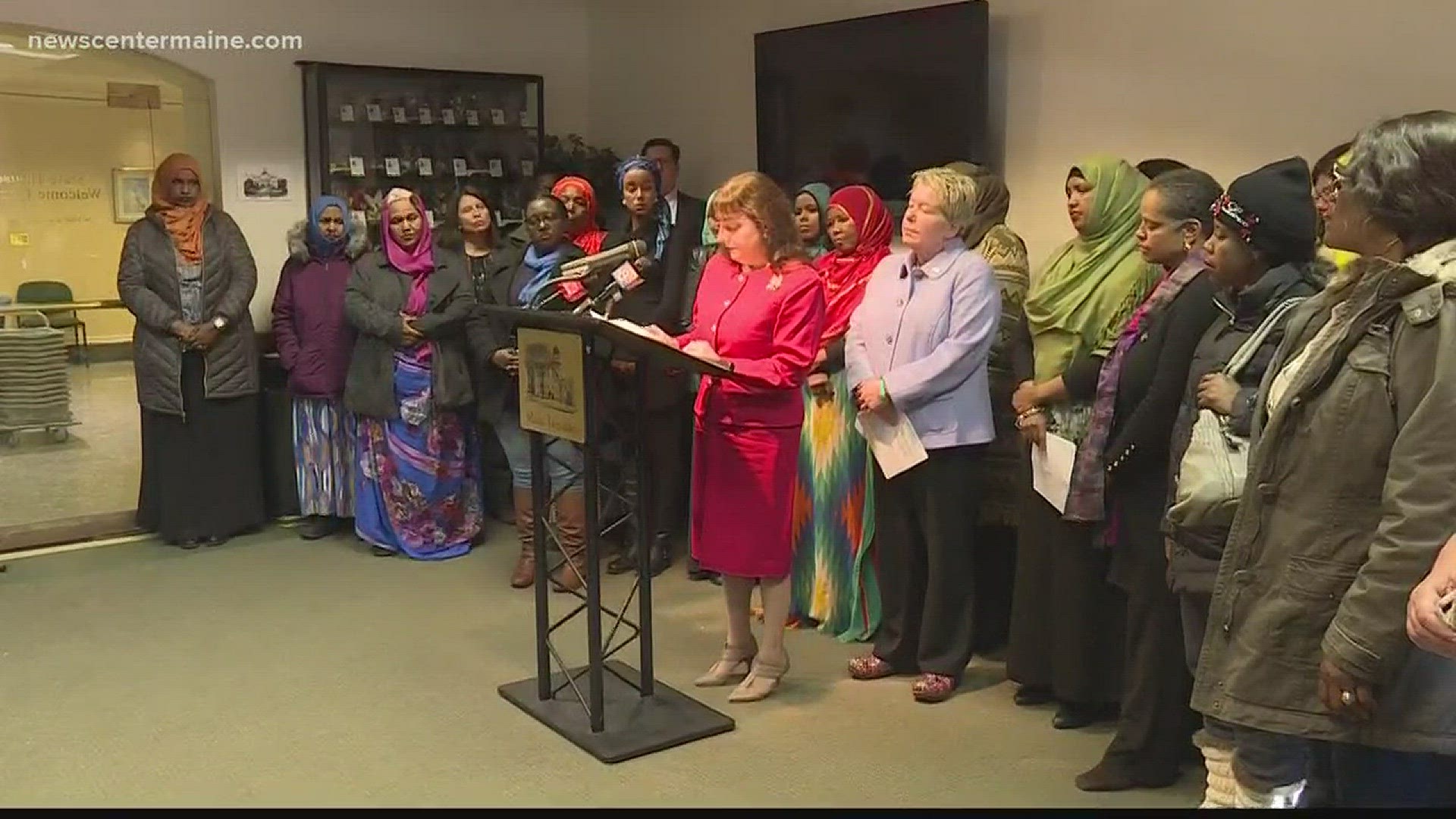AUGUSTA (NEWS CENTER Maine) — The latest political fight in the Maine Legislature is focusing on an issue many people have never heard of: female genital mutilation (FGM). It’s a practice both lawmakers and the United Nations say is still used in some African and Middle Eastern countries.
Legislators in both parties want to make sure it doesn’t happen in Maine’s refugee and immigrant communities. But at the moment, that may be one of the few areas of agreement.
This issue has become remarkably partisan inside the Statehouse.
Republican Rep. Heather Sirocki brought it up last year, but after getting initial support, Rep. Sirocki said her bill was defeated by Democrats.
This year, Sirocki got Gov. LePage to sponsor the same bill. Democrats, meanwhile, put together their own FGM bill. That plan was introduced Monday, when Democratic lawmakers were joined by about a dozen immigrant women, including some who said they had suffered FGM themselves as girls in their native Somalia.
Democrats said their plan would make it a Class A felony to perform the FGM procedure, unless medically necessary.
Sirocki's bill, introduced this time by LePage, would also make performing FGM a Class A felony. The major difference is that the Suricki bill would also charge parents with a crime, while the Democrats bill would not.
Both sides agree Maine needs a specific law against FGM. Twenty-six other states already have such laws, and there is also a federal law banning the practice. But the parties differ on the need for the law.
Sirocki said Tuesday she believes Maine immigrant girls are at risk of FGM.
"I believe it's happening here and happening now," Sirocki said. "I had a report, an anonymous report, one of many relayed to me, that a nurse at a hospital in Maine — I can’t tell you the name because the individual does not wish to share that — treated three little girls under age 18, one quite young, here in Maine in the last two months."
Democrats say they do not think it is happening. That was supported by Fatuma Hussein, executive director of the Immigration Resource Center of Maine. Hussein said she, too, suffered FGM as a girl in Somalia.
"It doesn’t happen. I want to say it doesn’t happen, we don’t do it and we don’t believe in it. Just because through education and what we know now taught us better. Yes, the majority of our community members, almost 100 percent, the faith leaders are saying we are against this," Hussein said.
The governor’s office provided statistics from the MaineCare program it says back up claims the FGM is happening here. They show that between 2012 and the end of 2016, there were 29 claims to MaineCare for treatment as a result of FGM.
Maine DHHS told NEWS CENTER Maine many of those claims are for conditions that would not occur in children, suggesting they were for adult women who experienced FGM earlier in their lives. But DHHS says some claims were for treatments that could include children.
This issue has also brought up accusations about anti-Muslim groups. Southern Poverty Law Center, a longtime anti-discrimination group, on Tuesday said it had found emails showing Sirocki had contacted the Maine chapter of "ACT! for America," considered by some to be a major anti-Muslim group. It said the emails were seeking support for her bill.
Sirocki said the group contacted her about the bill. She said she gave them the information and told them about the Tuesday press conference.
Sirocki denied any anti-Muslim motive on her part and also said FGM is not a religious issue because in some cultures the mutilation also happens to Christian girls.
The Republican state representative had scheduled a press conference for Tuesday, so Democrats brought out their plan Monday. They were joined by a number of immigrant women, some of whom said they had suffered FGM as children in their native Somalia.
All agreed the practice needs to be banned in Maine.
It has already against the law in 26 states and there’s a federal law against it, but the Democrats and Sirocki agree Maine needs its own law.
One of the things they don’t agree on is whether FGM is actually happening in Maine. Sirocki says it is, but Fatuma Hussein of the Immigration Resource Center in Auburn says it is not.

